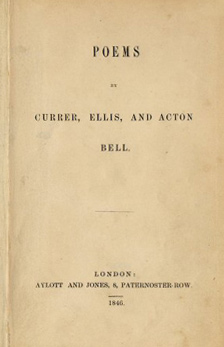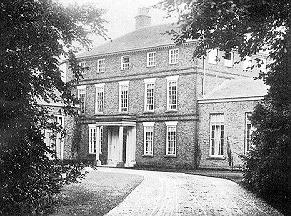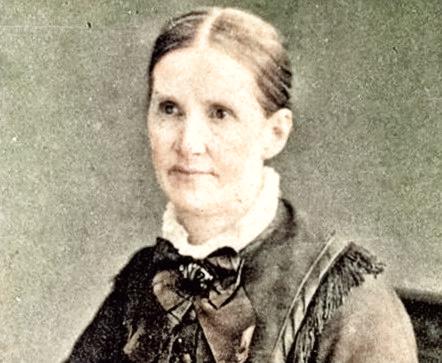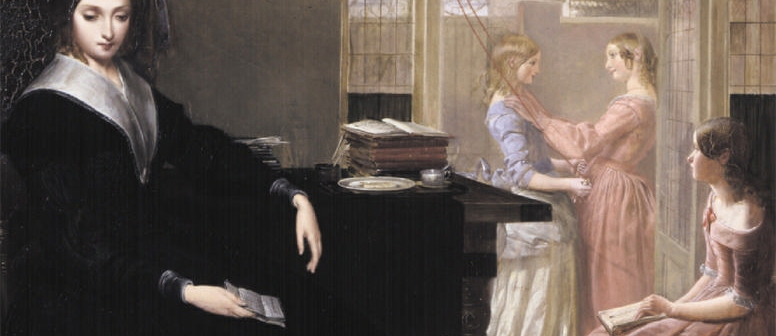As Anne Brontë reveals in her often autobiographical novel ‘Agnes Grey‘, she frequently turned to poetry when in need of solace:
“When we are harassed by sorrows or anxieties, or long oppressed by any powerful feelings which we must keep to ourselves, for which we can obtain and seek no sympathy from any living creature, and which yet we cannot, or will not wholly crush, we often naturally seek relief in poetry – and often find it, too.”

Anne loved to read poetry, but thankfully for us she loved to write it too, and her verse often gives us clues about her life and feelings at the time she put quill to paper. She also often, although not always, dates her poems, giving us further clues to the inner meaning of her verse. On one occasion Anne even helpfully gave her poem the title of the date she composed it: ‘Monday Night May 11th 1846′, although Charlotte later changed its title to the rather more catchy ‘Domestic Peace‘.
The poem we are going to look at today is dated Sunday, 13th December 1840 and as this is the Sunday before that date in this year’s calendar rotation it seemed a fitting time to examine it. It is called simply ‘Retirement’, but it’s not referring to a permanent retirement at the end of a working life, but a rather shorter retirement at the end of a working day, week or term.
The date of its composition may indicate that this was Anne’s last day at Thorp Green before returning home to Haworth for the Christmas holidays with the family she loved. She had commenced her post as governess there in May of that year, and although her Robinson charges were much better behaved than her previous Ingham charges of Mirfield (as all who’ve read of the Bloomfield children in ‘Agnes Grey’ will appreciate) she still longed for peace and solitude once more.

All of the Brontë siblings were shy, and Anne’s difficulties when in company led Charlotte to wonder whether her employers would believe that she stuttered, but with typical courage Anne fought and overcame her introverted nature when at work, allowing her to hold down a job for far longer than her sisters and brother. Elizabeth Gaskell, based solely upon what she had heard from Charlotte and other Haworth villagers, made a distinction between the natures of Anne and Emily:
“Emily was… extremely reserved in manner. I distinguish reserve from shyness, because I imagine shyness would please, if it knew how; whereas, reserve is indifferent whether it pleases or not. Anne, like her eldest sister, was shy; Emily was reserved.”
This may well have been unfair on Emily, for those who knew her best, like parsonage servant Martha Brown, often commented on how kind hearted she was. Nevertheless there is no doubt that all the sisters found it a strain to be in the company of people they didn’t know, and this is at the heart of Anne’s poem.

At the end of her first year as governess to the Robinsons, Anne was in desperate need of some relaxation – a chance to rest her mind and spirit and simply let it stretch its wings and soar where it will. This is a feeling that all teachers will be familiar with, but whether you work or have reached a state of permanent retirement I hope that you find a time to rest and relax as the winter holidays approach. Let us end now with Anne’s poem itself, short, simple and yet it still resonates with us all today!:
“O, let me be alone a while,
No human form is nigh.
And may I sing and muse aloud,
No mortal ear is by.
Away! ye dreams of earthly bliss,
Ye earthly cares begone:
Depart! ye restless wandering thoughts,
And let me be alone!
One hour, my spirit, stretch thy wings,
And quit this joyless sod,
Bask in the sunshine of the sky,
And be alone with God!”

Wonderful selection and background information! So appropriate for the season, and one I can certainly relate to.
Thank you, as always, for brightening my day with a bit of Anne’s poetry.
Thank you Eric!